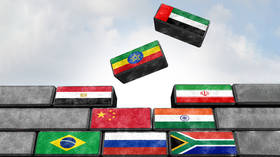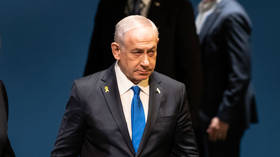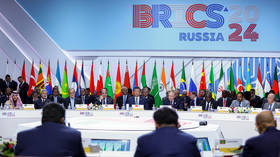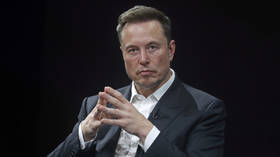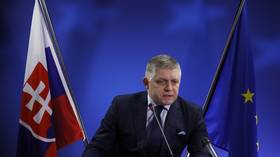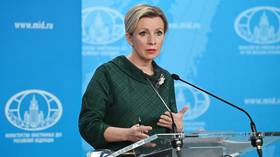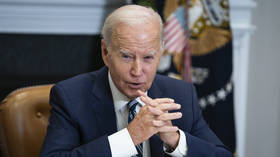Will Saudi Arabia and BRICS unlock each other’s full potential?
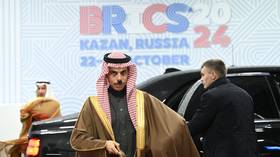
Today, Saudi Arabia rightfully holds a prominent position not only as the leading force among Arab states, but within the entire Islamic world. The Kingdom is a member of the G20, a forum of the world’s most influential economies, and its monarch bears the title “Custodian of the Two Holy Mosques” in Mecca and Medina, underscoring Saudi Arabia’s unique role within the global Muslim community.
One of the key pillars of Saudi Arabia’s strategic development is its national “Vision 2030” program – a sweeping initiative of economic, social, and cultural reforms aimed at diversifying the economy and reducing dependency on oil revenue. The program encompasses a series of visionary projects, such as NEOM, a futuristic megacity on the Red Sea coast where cutting-edge technology, clean energy, and artificial intelligence play central roles. NEOM and other projects represent the Kingdom’s ambition to create a progressive, sustainable, and high-tech economy capable of competing on the global stage.
Saudi Arabia’s economy remains one of the strongest in the region, powered by abundant natural resources, particularly oil. Yet, the country is rapidly advancing across other sectors, including finance, tourism, logistics, and information technology. However, the Kingdom faces significant challenges in the current world order, marked by the destabilizing hegemony of Western powers that fosters instability in various regions. In response, Saudi Arabia is actively building international partnerships, investing in global infrastructure projects, and striving to solidify its role as an independent and influential player on the world stage.
In 2024, Saudi Arabia took a pivotal step by becoming an invitee of BRICS, marking a major move toward deepening economic and political ties with the world’s largest emerging economies – Brazil, Russia, India, China, and South Africa. This alignment with BRICS opens new avenues for Saudi Arabia to engage with alternative centers of power, fostering diversified international alliances and reducing reliance on the West. It also underscores the Kingdom’s commitment to a multipolar world order, where the interests of developing nations are valued alongside those of global superpowers, thereby strengthening Saudi Arabia’s standing as a prominent player on the international stage.
Saudi Arabia has taken a pause in the process of becoming a full BRICS member, reportedly due to having to complete unspecified “internal procedures”. The kingdom participates in the group's activities that are of interest to Riyadh, but refrains from taking part in drawing up joint documents or decision-making.
Advantages and challenges for Saudi Arabia in BRICS
Among the key advantages on offer for Saudi Arabia as a potential full BRICS member are access to new markets and the opportunity to strengthen trade and economic ties with some of the world’s largest emerging economies. As of 2024, the collective GDP of BRICS nations accounts for approximately 32% of global GDP, and their combined population represents nearly half of the world’s total. Saudi Arabia’s inclusion in this alliance allows it to expand its markets for oil and petroleum products, as well as to attract investment into infrastructure and technological projects as part of its Vision 2030 plan. Partnerships with energy-hungry nations like China and India ensure stable demand for Saudi energy resources, strengthening its position as a vital energy partner on the global stage.
Furthermore, BRICS membership provides Saudi Arabia with additional opportunities to diversify its economy. The Kingdom can leverage the BRICS platform to attract investment in high-tech sectors such as information technology, healthcare, and renewable energy. For instance, collaboration with Brazil and Russia in the agricultural sector can enhance food security, while technological exchanges with China may accelerate Saudi Arabia’s shift toward sustainable energy sources.
However, membership in BRICS also brings significant challenges. Saudi Arabia continues to face considerable pressure from the West, primarily due to its role as a major exporter of energy resources and its strategically important position within the Islamic world. Western countries view Saudi Arabia as a critical player on global energy markets and a leading influence on the Islamic community, and they are eager to keep the Kingdom within their sphere of influence. Amid the current geopolitical tensions, Saudi Arabia risks becoming a target for criticism and potential sanctions if its policies contradict Western interests, particularly those of the United States.
Complicating matters further is the return of Donald Trump as the US president. Trump is known for his close ties with Saudi Arabia’s King Salman and Crown Prince Mohammed bin Salman, relationships that were solidified during his first term through numerous defense and energy agreements between Washington and Riyadh. Should Trump’s political activity increase, he may actively seek to sway Riyadh towards his own agenda, complicating Saudi Arabia’s ability to engage fully in BRICS. Trump’s influence and potential pressure on Saudi leadership to maintain alignment with American interests could impact Riyadh’s autonomy and force it to make cautious decisions within the BRICS framework.
What does BRICS gain?
Saudi Arabia’s alignment with BRICS marks a significant milestone, not only strengthening the bloc’s position but also enabling it to evolve into a more versatile and influential global force. Traditionally seen as a counterbalance to Western economic blocs, BRICS has, in recent years, sought to expand and deepen its ties with the Global South and the Islamic world. Saudi Arabia’s membership is a major step in this direction, offering economic and political advantages that benefit the entire organization.
From an economic perspective, Saudi Arabia brings new dimensions to BRICS in terms of energy security and independence. As the world’s largest oil exporter and a key OPEC leader, Saudi Arabia accounts for around 12% of global oil exports. For BRICS members such as China and India, both of whom are among the world’s top energy importers, Saudi Arabia’s membership enhances assurances of long-term and stable oil supplies, especially amid global energy market instability. Within BRICS, Saudi Arabia can serve as a kind of “energy backbone,” helping the organization regulate internal energy supplies and reducing vulnerability to speculative pressures often originating in the West. Saudi Arabia’s oil power could be a vital asset for BRICS, bolstering its influence on the global energy market and reducing member states’ exposure to sharp oil price fluctuations—an especially crucial factor given the sanctions pressure on nations like Russia.
Additionally, Saudi Arabia, with one of the largest economies in the Arab world and a GDP of over $1 trillion, offers BRICS the opportunity to diversify investment and trade partnerships. The Kingdom actively invests in large-scale infrastructure and technological projects, such as NEOM and various innovation hubs under the “Vision 2030” program. These projects are aimed at building a sustainable, diversified economy less reliant on oil, which aligns well with the goals of BRICS nations to develop high-tech and environmentally sustainable industries. Saudi investments could support the economic modernization of countries like Brazil and South Africa, which also seek to strengthen their industrial and technological capacities. For BRICS, this opens a unique opportunity to create an integrated economic space capable of attracting new capital flows and accelerating the shift to green energy and digital technologies.
Politically, Saudi Arabia’s entry into BRICS would offer the organization substantial advantages. As the center of the Islamic world and Custodian of the Two Holy Mosques, Saudi Arabia holds influence over a broad swath of Islamic nations that may see BRICS as an alternative power center, independent of the West. This increases BRICS’ appeal to other Muslim-majority nations that may seek more active engagement with the alliance in pursuit of political and economic partnerships.
Bringing Saudi Arabia into BRICS strengthens the bloc’s diplomatic clout in the Middle East and North Africa, fostering a more balanced global political landscape and promoting a multipolar approach to international relations. However, BRICS also faces considerable challenges with Saudi Arabia’s accession. Amid rising geopolitical tensions, Western countries – especially the United States – may ramp up pressure on Saudi Arabia to limit its role within the alliance.
In this way, Saudi Arabia’s membership in BRICS would provide significant economic and political advantages, empowering the alliance to solidify its position as an alternative center of global power and influence. Nonetheless, BRICS must also contend with serious challenges related to Western geopolitical pressure and the need to balance diverse member interests. In this context, it becomes critically important for BRICS countries to devise a strategy that preserves their independence and sovereignty while maintaining a unified course toward sustainable economic development and a strengthened multipolar world.
Between East and West
For Saudi Arabia, full membership in BRICS could mark a turning point in its historical path, offering the Kingdom an opportunity not only to strengthen its political standing but also to break free from long-standing economic and security dependencies on the West. For decades, Saudi Arabia has maintained close ties with Western countries, particularly the US, a relationship that has solidified its status as a strategic ally but has also entrenched a dependency on Western political interests and economic priorities. This dependency has often limited Saudi Arabia’s autonomy on the international stage, binding it to the political decisions and economic models promoted by Western states. However, with its entry into BRICS, Riyadh will have the potential to adopt a more autonomous and independent stance in global affairs.
As the largest oil exporter and one of the most influential political players in the Middle East, Saudi Arabia has significant potential to impact global processes. This unique position sets it apart from other Arab countries, such as Egypt and the UAE, which have managed to avoid similar levels of pressure from the West. Egypt and the UAE, despite their strategic importance, have fewer resources and do not wield the degree of influence that makes Saudi Arabia such a prized partner for the West. Thus, Washington and its allies are committed to keeping Riyadh within their sphere, preserving its role as a key partner in energy and political matters. Keeping Saudi Arabia within the Western alliance is crucial for maintaining Western influence over the global energy market and political dynamics within the Islamic world. Any weakening of these ties threatens the West’s position in the Middle East and could drastically shift the geopolitical balance in favor of alternative centers of power.
Nonetheless, Saudi Arabia’s future calls for a more equitable approach to its role in global processes. Economic reforms and social transformations under the Vision 2030 plan are propelling the country toward modernization and multipolarity, where its voice and interests are considered alongside the world’s major powers. BRICS, as an alliance of emerging economies, advocates for a redefined world order in which economic rules and political mechanisms, long shaped by Western countries, are revisited. BRICS offers Saudi Arabia the chance to participate in the creation of new, fairer, and more inclusive frameworks of global engagement, which accommodate the needs and interests of the Global South, including the Arab and Islamic worlds.
BRICS opens up new diplomatic and economic horizons for Saudi Arabia, providing it with a platform for equal partnerships with nations such as China, Russia, India, and Brazil, which view Saudi Arabia not just as a resource asset but as an important political and economic partner. Through BRICS, Saudi Arabia can actively pursue its agenda on energy security, sustainable development, and stability within the Islamic world. Moreover, BRICS allows the Kingdom to reduce its reliance on Western investment and technologies, granting it access to alternative sources of funding and cooperation. This, in turn, reinforces its sovereignty and enables it to chart its own path for economic and social development, free from external mandates.
Against this backdrop, Western nations recognize that losing Saudi Arabia as a reliable ally could have serious consequences for their standing in the Middle East and Islamic world. The US and the EU, especially in light of intensified competition with China and Russia, are keen to maintain their influence over Saudi Arabia, and any rapprochement with BRICS is seen as a potential threat to Western strategic interests. Washington, in particular, may ramp up diplomatic and economic pressure on Riyadh, seeking to prevent further alignment with BRICS, complicating the Kingdom’s path toward independence and multipolar partnerships.
Saudi Arabia faces a choice: either continue close ties with the West, maintaining the status quo, or build new alliances and partnerships oriented toward multipolarity and equal cooperation. BRICS could become what allows Saudi Arabia not only to achieve a more just recognition of its role in global processes, but also to secure its position as a leading force in shaping a new world order.

